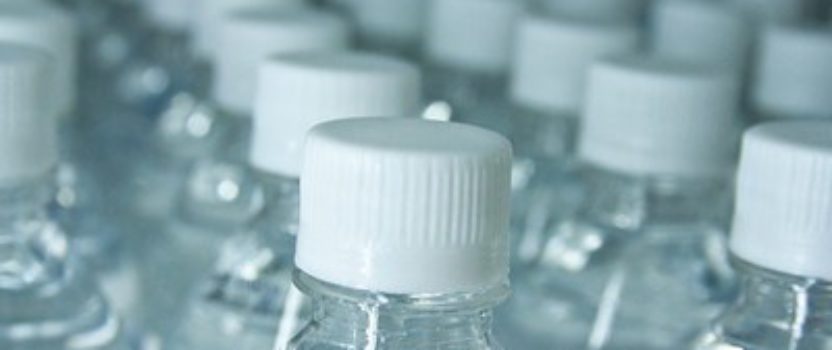Reduce Plastics Use
“Just one word… plastics…There’s a great future in plastics.”
Remember this famous quote from the 1967 film, “The Graduate“? It foreshadows the incredible rise of the plastic industry, which took off like a runaway train shortly after its release. Now, over 40 years later that train is about to run off the tracks. We produce way too much plastic, it never goes away, recycling it is inefficient and it is toxic to the environment and ourselves. This train needs to change direction.
Plastics by the Numbers
The world currently produces over 200 million tons of plastic per year, half of which is thrown away in less than a year. Imagine eight football fields thickly covered in plastic bottles… this is what the US throws away every five minutes! Now, imagine a line of plastic water bottles going around the planet five times… this is just one week’s worth of plastic water bottles! One billion plastic grocery bags are distributed every day.
Break it down
Plastics are forever—they do not biodegrade. Instead, they break down into smaller and smaller pieces, eventually becoming toxic chemicals that contaminate soil, waterways, and oceans and enter the food chain. Plastic which makes its way to the ocean is of particular concern. In the North Pacific, there is a floating gyre of plastic, roughly twice the size of Texas and growing, known as The Great Pacific Garbage Patch. The plastic which floats and swirls in the currents like a plastic soup is often ingested by marine life, from tiny zooplankton to great whales.
While certain plastics have done much good in the world, the so-called disposable plastics such as grocery bags, water bottles, straws, lids, cups, etc., designed to be used just once and then thrown away are the culprit in most of the ocean’s plastic pollution. These plastics are cheap and convenient but also tough and buoyant, creating a deadly hazard for marine life. Sea turtles mistake floating plastic bags for jellyfish, a part of their natural diet. The bags clog their digestive tracts, eventually leading to starvation. Albatross chicks have been found with their stomachs filled with colorful plastic bits, fed to them by the parent birds. Many other species such as whales, dolphins, and seals are being killed and entangled by deadly plastic debris as well. Some fish, by ingesting plastic contaminated zooplankton, krill and smaller fish which has worked its way up the food chain, have become so toxic themselves they are no longer safe to eat.
In the U.S. we throw away about 185 lbs. of plastic per person per year yet very little is recycled. Recycling plastic is not yet sustainable—it is expensive and does not slow the production of new plastic. Plastic sent to recycling centers is not turned into new, similar objects in the way that aluminum cans and glass bottles are made into new aluminum cans and glass bottles. Plastic is turned into other products such as doormats, textiles and plastic lumber.
Bio-plastics are plastics made from plants. They are touted to be a green alternative to conventional plastics but they are not necessarily so. Plastic is the result of a process called polymerization. Building blocks for this process are atoms of carbon and hydrogen, obtained from oil, gas or plant materials. Then other chemicals are added. The use of plants does not necessarily mean it’s greener, depending on the other additives. You can make non-biodegradable and toxic plastic out of organic corn. Still, there is hope here if more manufacturers can be convinced to produce truly biodegradable plastics and more consumers demand them.
Plastics as Poison
It is a shocking fact that most of us are partly made of plastic these days. Bisphenal-A, PCB’s, tributyltin and phthalates, all plastic chemicals have been found in measurable levels in human blood and tissue, probably entering our bodies through the food chain as well as leaching from the everyday plastics we come in contact with, such as water bottles and plastic packaging. These toxins can cause cancer, premature puberty, hyperactivity, obesity, asthma, schizophrenia and more. We are literally poisoning ourselves with plastic!
Our Actions Matter
So what is a responsible, green-minded citizen to do? The problem is not with the plastic itself but rather how we make and use it. In today’s world we need plastic and indeed plastic has benefited humans in many ways. We simply need to stop wasting it. We need to look at alternatives to single–use, disposable plastics.
Bringing about a change of culture can be a long slow process but it can be done. Several progressive cities have already banned plastic bags and more are in the process. We, as citizens and consumers can put pressure on our elected officials as well as the retailers who carry and distribute single-use plastics. We can avoid purchasing products with excessive packaging such as plastic bottled beverages. We can buy items in bulk, we can carry our own mug for coffee instead of accepting a plastic cup. We can re-use our shopping bags or bring tote bags from home. And we can recycle the plastic that we do use. All these actions can help make a difference and the most important thing is to spread the word. Education and awareness are key. Just say NO to single-use, disposable plastics! And remember our actions matter!
http://plasticpollutioncoalition.org/
*Image of plastic bottles by Steven Depolo via Flickr Creative Commons.



Leave a Reply
Your email is safe with us.